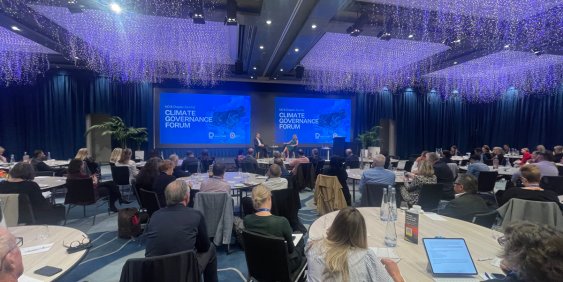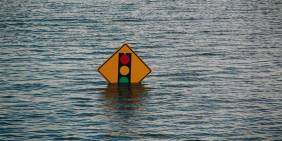
Action over anxiety: why climate-conscious boards are on safer legal ground

Daniel Street urges directors to prioritise climate governance – and not be paralysed by fear of litigation.
Climate and nature-related risks and opportunities are central to board governance and cannot be sidelined, says Daniel Street, Partner at DLA Piper New Zealand and International Co-Lead for Sustainability Reporting, Disclosure and Marketing.
Speaking at Monday’s IoD Climate Governance Forum in Auckland, Street urged directors to focus on action over anxiety when it comes to climate risk.
Directors already have a legal obligation to consider climate- and nature-related risks. But the law does not demand perfection – nor should it lead to paralysis.
“The position is very settled,” he said. “Directors are required to take into account climate change-related risk and nature risk as part of their assessment of the risks and opportunities that face their organisations.”
Importantly, these duties are not about achieving a specific outcome. Instead, they focus on decision-making processes.
“Your directors’ duties don’t require you to achieve any particular end-state. They focus on procedure.”
He outlined two key duties under New Zealand company law:
- The duty to act with reasonable care, diligence and skill – “an objective test,” he noted, based on the context of the company, the nature of the decision and the foreseeability of the risk.
- The duty to act in good faith and in what you believe to be the best interests of the company.
“Your obligations as directors when looking at the best interests of the company are not limited to profit maximisation, nor are they focused on any particular group of shareholders,” he said. “You have broad discretion.”
However, the dynamic changes if a board has not considered an issue at all – or has not put any transition plan in place.
While litigation is increasing globally, Street was keen to demystify the numbers.
“Twenty percent of all new climate litigation cases in 2024 were against corporates and their directors or officers. But it is rare that claims are brought against directors as individuals.”
That rarity is due in part to the wide discretion directors are given – and the difficulty of bringing claims against individuals without the company’s involvement.
Street cited the ClientEarth v Shell case in the UK as a pivotal example.
“ClientEarth sought to establish a whole range of climate-specific duties on directors … and the court said no. Directors have the freedom and discretion in how they run their company.”
The Court was unwilling to second-guess the commercial decision-making of the directors in considering the route to Shell's 2050 net zero target.
One of the most common concerns raised by boards relates to public targets and future commitments. Street was clear: fear of being sued should not stop boards from setting or talking about climate targets.
“From a legal perspective, when you deal with a claim about the future, what you have is not any kind of promise that it is going to be achieved,” he explained. “You are making a representation that you have a reasonable basis to support that statement.”
That means the key legal protection lies in having a documented, evidence-based plan – even if it’s incomplete.
“We can expect people to have a plan for what they are going to do between now and 2030,” he said. “And the greatest protection that you as boards have in relation to legal loss is if you focus on the action and communicating the action.”
Street called on boards to normalise discussion of obstacles and dependencies.
“You can say, ‘Yes, we have a target. It’s going to be incredibly hard to achieve because we face these four main obstacles’ … that’s fine.”
Silence, by contrast, carries risk.
“If you’re an organisation that stays silent, you run the risk of challenge – especially if you’re in a sector where action is expected.”
He pointed to international examples, such as LEGO and Ingka (IKEA), that have revised climate targets – without facing litigation – because they were transparent.
“They made a statement: ‘This is what we’ve been doing, we haven’t been successful, but here’s what we’ve learned.’ That’s what good looks like.”
Street’s ultimate message to directors was simple: act.
“Don’t get caught up in the fear of legal risk and litigation,” he said. “We’ve had three major cases in New Zealand. Compared to the US and Australia, we are a relatively small litigation market.
“Just work out what you need to do in order to deal with the climate change risks that face your business – and just get on and do it.”



